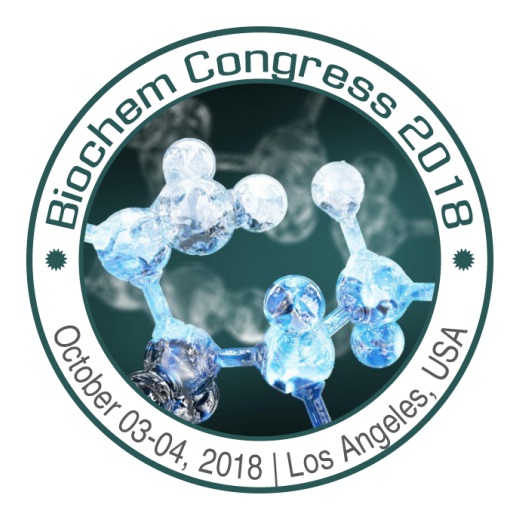Computational Chemistry and Chemical Biology
Computational Chemists are developed and applied the computer programs to answer key questions in biochemistry. They improve the model, predict, visualize, and analyse the structures, functions, and interactions of biologically important molecules. Computational chemistry is a division of chemistry that uses computer replication to assist in solving chemical problems. This field of science is used for methods of theoretical chemistry, incorporated into efficient computer programs, to calculate the structures and properties of molecules and solids.
Chemical biology is that the subdivision of science wherever the study of the chemicals & chemical responses concerned in biological processes, incorporating the disciplines of bioorganic chemistry, biochemistry, cell biology and pharmacological medicine.
- Molecular mechanics and Molecular Sensing
- Molecular mechanics and Molecular Sensing
- Using of siRNA tools
- Chemical methods to stem-cell biology
- Bio organic and inorganic Chemistry
- Chemical amalgamation of peptide
Related Conference of Computational Chemistry and Chemical Biology
Computational Chemistry and Chemical Biology Conference Speakers
Recommended Sessions
- Clinical Pathology
- Animal and Plant Biochemistry
- Antibody Engineering & Therapeutics
- Biochemistry in Cancer research
- Biomathematics and Biostatistics
- Biophysical techniques
- Biophysics
- Cellular and Molecular Biology
- Clinical & Forensic Biochemistry
- Computational Chemistry and Chemical Biology
- Environmental Biochemistry
- Enzymology and Biochemistry
- Epidemiology
- Food and Nutritional Biochemistry
- Gene Expression and Genetic Engineering
- Improving Rare Disease Diagnosis with Metabolomics
- Industrial & Structural Biochemistry
- Metabolic Biochemistry
- Metabolomic Technology and Bioinformatics
- Metabolomics in Ophthalmology
- Obesity and Metabolic Disorder
- Pharmaceutical Biochemistry
- Protein Engineering
Related Journals
Are you interested in
- 3D Structure Determination - Structural Biology-2026 (France)
- Advanced Drug Delivery Systems for Metabolic Therapy - DRUG CHEMISTRY CONF 2026 (France)
- Advanced Techniques in Structural Biology - Structural Biology-2026 (France)
- AI & Computational Structural Biology - Structural Biology-2026 (France)
- Biochemistry and Biophysics - Structural Biology-2026 (France)
- Biomarker-Guided Drug Development - DRUG CHEMISTRY CONF 2026 (France)
- Chemical Biology Tools in Metabolic Research - DRUG CHEMISTRY CONF 2026 (France)
- Computational Approach in Structural Biology - Structural Biology-2026 (France)
- Computational Drug Design and Molecular Modeling - DRUG CHEMISTRY CONF 2026 (France)
- Drug Designing and Biomarkers - Structural Biology-2026 (France)
- Drug Resistance and Therapeutic Durability - DRUG CHEMISTRY CONF 2026 (France)
- Enzyme Modulation Approaches in Antidiabetic Drug Design - DRUG CHEMISTRY CONF 2026 (France)
- Epigenetic Regulation and Small-Molecule Therapeutics - DRUG CHEMISTRY CONF 2026 (France)
- Future Directions in Drug Chemistry for Diabetes Management - DRUG CHEMISTRY CONF 2026 (France)
- Hybrid Approaches for Structure Prediction - Structural Biology-2026 (France)
- Lipid Chemistry and Metabolic Regulation - DRUG CHEMISTRY CONF 2026 (France)
- Medicinal Chemistry Strategies for Metabolic Disorders - DRUG CHEMISTRY CONF 2026 (France)
- Membrane Proteins and Receptors - Structural Biology-2026 (France)
- Molecular Modelling and Dynamics - Structural Biology-2026 (France)
- Natural Product Chemistry in Diabetes Drug Discovery - DRUG CHEMISTRY CONF 2026 (France)
- Oxidative Stress Modulation through Drug Chemistry - DRUG CHEMISTRY CONF 2026 (France)
- Peptide and Protein-Based Drug Chemistry - DRUG CHEMISTRY CONF 2026 (France)
- Pharmacokinetics and Drug Metabolism Studies - DRUG CHEMISTRY CONF 2026 (France)
- Prodrug Design and Chemical Activation Strategies - DRUG CHEMISTRY CONF 2026 (France)
- Proteomics and Genomics - Structural Biology-2026 (France)
- Regulatory Chemistry and Drug Safety Assessment - DRUG CHEMISTRY CONF 2026 (France)
- Structural Bioinformatics and Computational Biology - Structural Biology-2026 (France)
- Structural Biology in Cancer Research - Structural Biology-2026 (France)
- Structural Virology - Structural Biology-2026 (France)
- Structural Virology and Infectious Diseases - Structural Biology-2026 (France)
- Structure-Based Drug Discovery - Structural Biology-2026 (France)
- Structure-Based Solutions to Global Health Challenges - Structural Biology-2026 (France)
- Structure-Function Relationships - Structural Biology-2026 (France)
- Structure–Activity Relationship Studies in Drug Chemistry - DRUG CHEMISTRY CONF 2026 (France)
- Synthetic Chemistry Innovations in Drug Development - DRUG CHEMISTRY CONF 2026 (France)
- Targeting Pancreatic Function through Drug Chemistry - DRUG CHEMISTRY CONF 2026 (France)
- The Structural Basis of Disease - Structural Biology-2026 (France)
- Translational Drug Chemistry from Bench to Clinic - DRUG CHEMISTRY CONF 2026 (France)

